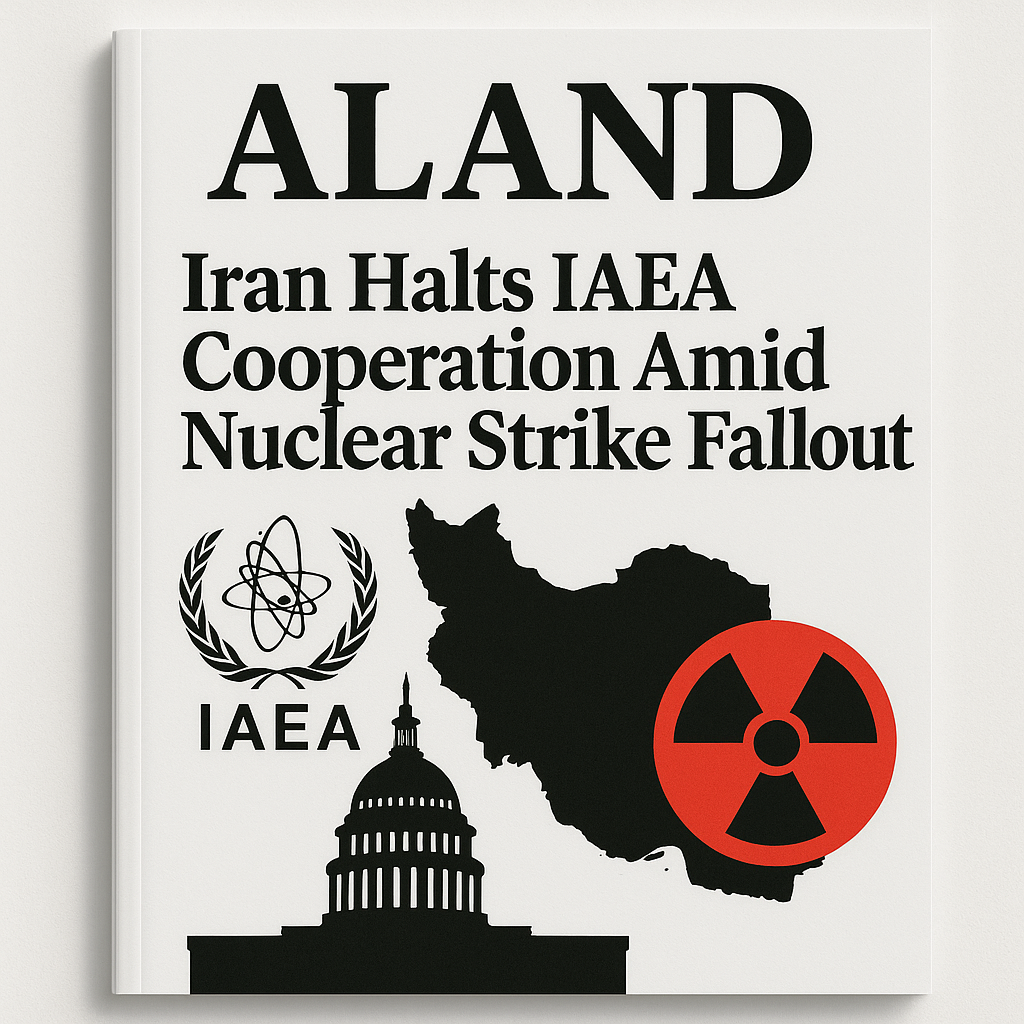Iran Halts IAEA Cooperation Amid Nuclear Strike Fallout
Published Date: 30th Jun, 2025
June 30, 2025 — Tehran, Iran
Iran Suspends IAEA Cooperation Following U.S. and Israeli Strikes
In a major escalation, Iran has announced it will suspend all cooperation with the International Atomic Energy Agency (IAEA). This decision is a direct retaliation for recent airstrikes conducted by the United States and Israel targeting Iranian nuclear facilities. Tehran has condemned these strikes as acts of war. The Iranian parliament voted overwhelmingly to halt inspections and monitoring by the UN nuclear watchdog, accusing it of failing to condemn the attacks and questioning its neutrality.
Nuclear Facilities Targeted in Coordinated Strikes
On June 22, 2025, U.S. B-2 stealth bombers alongside Israeli forces carried out precision strikes on three key Iranian nuclear sites: Fordow, Natanz, and Isfahan. These facilities, central to Iran’s uranium enrichment program, sustained significant damage. Satellite images showed extensive destruction, especially at the Fordow underground facility near Qom. The U.S. operation, known as "Midnight Hammer," employed bunker-busting bombs to penetrate hardened targets.
IAEA's Response and Iran's Accusations
The IAEA expressed concern over the damage and emphasized the importance of continued monitoring to uphold global nonproliferation efforts. However, Iran has accused the agency of failing to take a firm stance against the strikes, undermining its credibility and role in nuclear oversight. Iranian officials argue that the IAEA’s perceived inaction compromises its neutrality.
International Reactions and Future Implications
Iran’s suspension of cooperation with the IAEA has alarmed the international community. The U.S. and European allies have urged Iran to resume compliance with its nuclear obligations and allow inspectors back into its facilities. Failure to do so may result in renewed sanctions and increased isolation. Meanwhile, Iran has vowed to accelerate its nuclear program, insisting on its right to peaceful nuclear energy under the Nuclear Non-Proliferation Treaty. Diplomatic efforts continue to seek de-escalation and restore the monitoring framework.
This situation remains dynamic, and further updates will be provided as events unfold.
Date: 30th Jun, 2025

